I realize this post could be quite controversial in the small shop world, especially since I am a small shop myself. But I appreciate transparency, and I think customers do, too. It’s a subject I’ve long been wanting to broach but just haven’t had the time to sit down and write consistent thoughts on it (also, I am honestly afraid of backlash from those “handmade” shops).
Why the handmade label?
But let’s talk about this from a pragmatic point of view. I own a relatively new business. Everything I come across in the small shop world is completely new to me. Ever since joining the small shop world, I’ve noticed this rise in the handmade movement, which prompts many, many shops to label their items handmade in order to gain positive perception—because handmade sounds better than mass-produced—and, in turn, be able to charge higher for their products. It drives customers to purchase because the word “handmade” exemplifies quality and “personal touch”. I have literally seen companies with the same manufacturer I use label their products handmade.
Now, I don’t want to go so far as to say these companies are lying. Because the truth is – almost everything is handmade. Everything has a human touch. Apparel and accessories manufacturing technology has not improved quite so far as to replace all human processes. In all factories, someone is still hand sewing your garments using sewing machines. So if that is your definition of handmade, then everyone can claim their products as handmade.
Define Handmade
So what is my definition of handmade, and where is the distinction between handmade and mass-produced? At how many units can we finally call it mass-produced? I see shops on Instagram with over 100K followers still calling their products handmade. And I’m pretty sure they’re bringing in hundreds of thousands of dollars in sales if not millions. So why are they calling their stuff handmade, while other shops making much smaller batches not claiming the handmade label?
Handmade to me lies in the process and number of people making the pieces. At a certain volume, the processes start to mirror factory processes and can no longer be considered handmade – even if the shop uses its own seamstresses. In fact, when they use their own seamstresses, they are essentially operating a small vertically-integrated factory. Look at Zara, and you will find that they use their own seamstresses, A.K.A., their own factories. Having 10 in-house seamstresses is no different than outsourcing your sewing to a small factory. Yet, shops with in-house seamstresses are proudly labeling their products handmade, while shops who outsource are balked at for their “mass-produced” products. This is so wrong in so many ways. Perception is everything. But honesty and transparency are more important.
I’ve posted in my Insta stories before about the fun fact that large companies like R.E.I. and Jansport used to contract local seamstresses to sew their backpacks in the comfort of their own homes. In this case, would you consider the backpacks “locally handmade”? If I wanted to create a prestigious perception and charge more for these backpacks, heck yes, I would say they were locally handmade. But if I were honest with myself, the sheer volume of these bags being produced is really no different than them being mass-produced in a large factory.
Truly Handmade
I’ve known several truly handmade shops on Instagram. I adore and admire the mamas behind those shops and support them all the way. Those to me include women who really are doing all the sewing in their homes. Maybe it’s a small (emphasis on small) group of women or family members who hand-sew their products, but there aren’t quite enough of them yet to mirror factory processes.
Quality Matters
So much more to talk about on this subject of handmade vs. mass-produced, but that was just some food for thought. I think shops owe it to their customers to be more transparent about their products. So the next time you see “handmade” and wonder if it really is, look at their processes and how big the shops are. Last but not least, there is nothing wrong with mass-produced. Because what one may call mass-produced may be labeled as handmade by another. What matters is the quality behind the pieces.
What OL Does
At Orcas Lucille, I outsource my production to multiple production partners. They have included all small batch production runs, since I am still a very small shop. These partners vary from small, local factories that have a handmade feel, to family-owned factories, to factories with large capacities that are willing to produce in small batches for me. They have been great partners, and if I wanted to, I could call my products handmade, since they are produced in small batches. But I would never venture that far unless I was sewing them in my home :).
What do you think? What is your definition of handmade? Comment below and let me know what you think!

Leave a comment